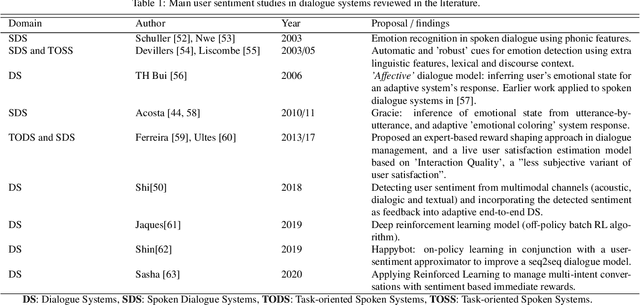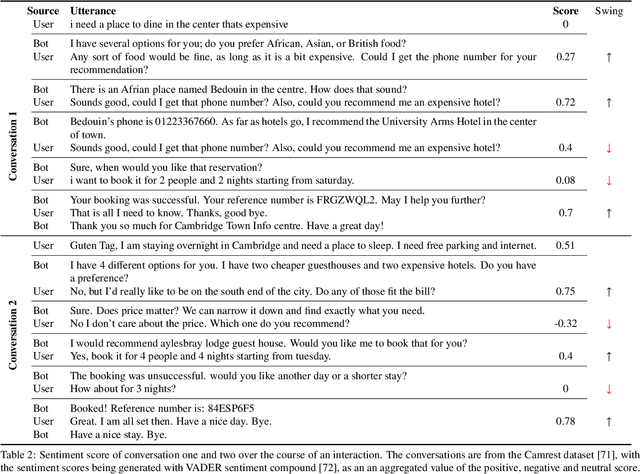Task-oriented Dialogue Systems: performance vs. quality-optima, a review
Paper and Code
Dec 21, 2021



Task-oriented dialogue systems (TODS) are continuing to rise in popularity as various industries find ways to effectively harness their capabilities, saving both time and money. However, even state-of-the-art TODS are not yet reaching their full potential. TODS typically have a primary design focus on completing the task at hand, so the metric of task-resolution should take priority. Other conversational quality attributes that may point to the success, or otherwise, of the dialogue, may be ignored. This can cause interactions between human and dialogue system that leave the user dissatisfied or frustrated. This paper explores the literature on evaluative frameworks of dialogue systems and the role of conversational quality attributes in dialogue systems, looking at if, how, and where they are utilised, and examining their correlation with the performance of the dialogue system.
 Add to Chrome
Add to Chrome Add to Firefox
Add to Firefox Add to Edge
Add to Edge